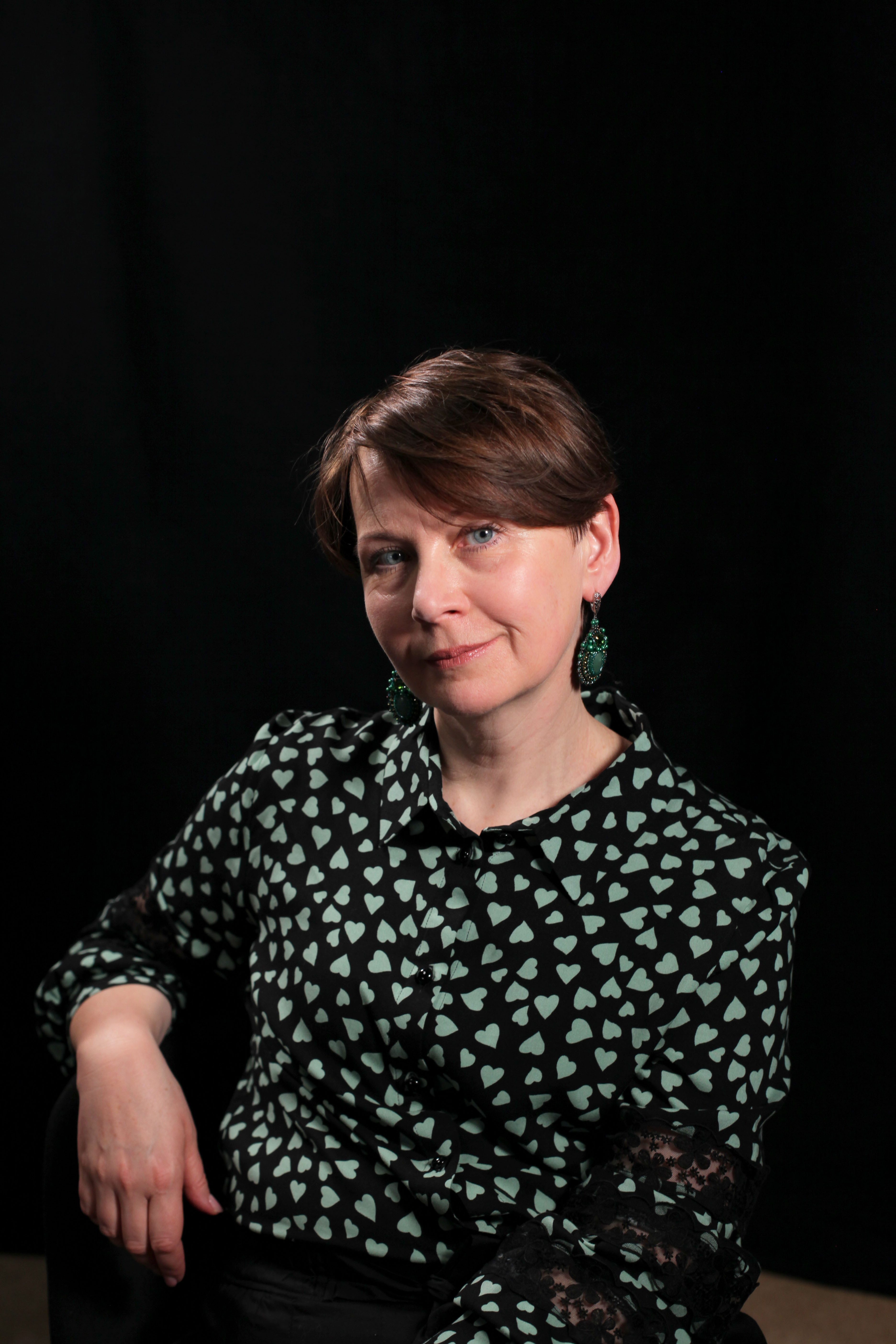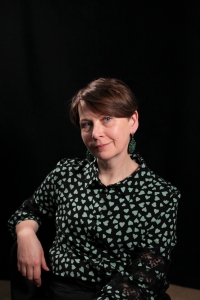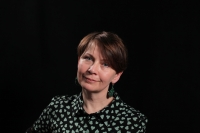This very [crucial] moment happened, perhaps, when the students got beaten, when I was already telling myself, “God, what’s happening, this can’t be.” That is, at first, it’s seemed that it was all just hanging out, and then, “how, this can’t…” How can this be happening in this country, how can this be happening to us? What kind of time we are living in? No, this can’t be happening. Then we already started monitoring the events and how they unfolded. I remember it was very cold in February, very cold. We couldn’t stop watching news [about] what’s happening in Kyiv, how it’s happening. Then [came] all those scary first deaths. At some point, we decided to go to the Maidan with my husband. We didn’t tell anyone, bought some warm clothes. We reached out to some Kyiv residents, I think, it was either the SOS Maidan [Euromaidan SOS] or the Euromaidan [organization], I don’t remember. We asked how we could help, what was needed. They said that they needed helmets, this and that. We went to Donetsk, tried buying something, but there was nothing there, everything had been bought out. In short, we gather, I don’t remember now what exactly did we gather, but we tried gather as many useful things as we could, load the car, and prepare to go. Now, the child, she was what, 12 years old. We’re preparing to go, and we write her a letter of sorts, “Dear Vlada, if anything happens, it’s written here about what, where, how, and what to do, where to go, and where are the money, what’s with the business.” The child is 12 years old. And she says, “Okay, I understand.” “We didn’t tell grandma and grandad anything, we said we were going to the relatives so that they don’t worry, we are only telling everything to you, so that you know that it’s going to be fine.” Now I think — crazy. We’d have better told our parents, because the child… That is, we put such responsibility on a 12-year-old child: you know where we went, you know what to do in case something [happens]. The deal is that my child, I think, was always so reasonable and mature that I could talk to her about anything at any age and trust her, and she trusted us. Even today, we have just a perfect relationship. In short, me and my husband went to the Maidan. We went by car, and I remember how scary it was, how tense. We got there okay, stayed with friends near Kyiv, and they said, "Wait, we need to figure out what to do, where you want to be useful." We spent the night, and then, I remember, we contacted people who told us to drive up there and leave this and that. We brought some things, some money, gave away what we could. This state of mind, you know, when you come to Kyiv after these deaths... The energy of the Maidan was so strong, so unreal as if it was not happening to you. We went through it. I remember we found that Donetsk tent of ours [it was a tent where people from Donetsk lived on the Maidan]. We approached it, talked to people, and it seemed as if everyone knew each other, as if they were close. On the one hand, there was fear, pain, grief, despair. On the other hand, there was the spirit of this struggle, the spirit of unity, they were so together. I remember my husband going on some kind of watch on the Maidan. I tried to do something there. We spent some time on the Maidan, we gave away what we had brought, this humanitarian aid. We came back home to Kramatorsk, and we were like, what to do next?


